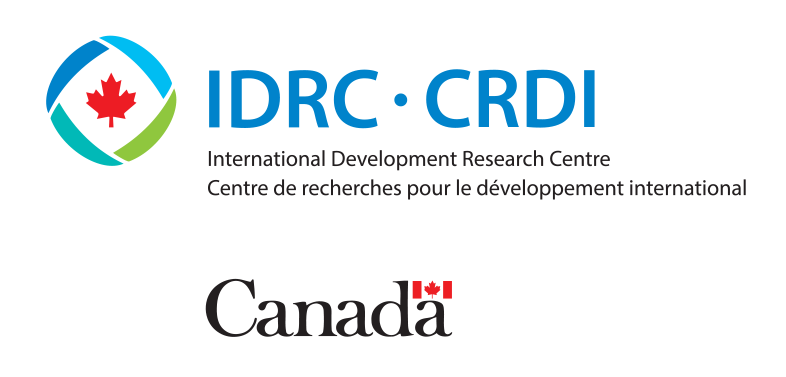About IDRC
A Crown corporation, we support leading thinkers who advance knowledge and solve practical development problems. We provide the resources, advice, and training they need to implement and share their solutions with those who need them most. In short, IDRC increases opportunities—and makes a real difference in people’s lives.
Working with our development partners, we multiply the impact of our investment and bring innovations to more people in more countries around the world. We offer fellowships and awards to nurture a new generation of development leaders.
What we do
IDRC funds research in developing countries to create lasting change on a large scale.
To make knowledge a tool for addressing pressing challenges, we
- provide developing-country researchers financial resources, advice, and training to help them find solutions to local problems.
- encourage knowledge sharing with policymakers, researchers, and communities around the world.
- foster new talent by offering fellowships and awards.
- strive to get new knowledge into the hands of those who can use it.
In doing so, we contribute to Canada’s foreign policy, complementing the work of Global Affairs Canada, and other government departments and agencies.
Resources
Displaying 56 - 60 of 324From food security to food wellbeing : examining food security through the lens of food wellbeing in Nepal’s rapidly changing agrarian landscape
Over 94 % of Nepalese migrant workers are male youth who leave their female counterparts behind to manage agriculture alongside their traditional domestic chores. Changing agrarian and labour landscapes shape food security, livelihood choices and the wellbeing of those who continue to engage in local small-scale agriculture. The study aims to understand the interactions between household livelihoods, food security and the wellbeing of left-behind women and lower-caste farmers. It includes a literature review, and draws results from 69 in-depth interviews with women farmers.
Safeguards for communities during acquisition of land for investment purposes
High levels of poverty and a predominantly rural population raise questions of vulnerability to manipulation during large scale land acquisitions in Kenya. Exposure to negative impacts are inherent where social and environmental safeguards are not deployed to protect the people impacted by involuntary displacement. This brief looks into social, economic and environmental safeguards for communities as the state undertakes compulsory land acquisition for investment purposes, part of the country's main development policy, Vision 2030.
Interrogating large scale land acquisition and its implications on women in sub-Saharan Africa : final synthesis report
The accountability mechanisms currently underpinning land transactions in Ghana are very weak. This study explores how land transactions are taking place at the local level, the repercussions for communities especially women, and the responses of women in particular and communities at large to changed circumstances of large-scale land acquisitions (LSLA). Discrimination against women in relation to land has its roots in customary laws and practices concerning the right of use, access to, and succession of land.
Understanding patterns of climate resilient development : the case of Senegal
This report presents a case study from Senegal that explores the relationships between economic development and climate change. Urbanisation and economic diversification are transforming the climatic risks that Senegal faces and widening the rural-urban resilience gap. The tourism sector, historically presented as an opportunity to reduce economic exposure to drought, has in fact contributed to new forms of vulnerability. Internal migration from rural inlands to urban coastal areas reduced vulnerability to droughts but increased exposure and sensitivity to floods and coastal erosion.
City building and regime creation in the peripheries for Mumbai
In terms of the splintering of cities, it is important to understand contemporary urbanization processes, speculative real estate development, and ways to challenge these via new modes of politics. This case study analyzes the impacts of largely ‘illegal’ city building, on different groups of people within the city, particularly relating to spatial (in)justice and violence.







